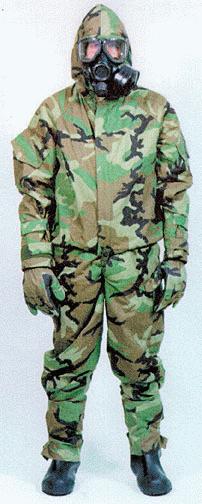



Remember that time when you were in second grade and I lent you a couple dimes to buy bubble gum and comic books? You never paid me back. Today’s total’s just with regular monthly compounding interest, Jimbo. Nothing unreasonable here – I’m giving you the family rate, you know. I’m just kinda pissed you haven’t remembered.

You fucking tightwad, John. I may be an an asshole, but sometimes I know when to let a long-held grudge go. That was almost fifty years ago.

At least I’m not threatening to kill you, Jimmy. Not like two Arabian tribes once did, over something even more trivial…
THE BASUS WAR
Combatant 1: Bakr Tribe
Combatant 2: Taghleb Tribe
Location of Conflict: Arabian Peninsula
Reason for Conflict: Somebody killed a camel.

This brings us to the start of our tale. According to folklore, the Basus War happened between two prominent tribes, the Bakr and the Taghlib, in what is now Saudi Arabia – most likely in the area between Al-Bahah and Makkah Provinces, on the southwestern part of the Arabian Peninsula. Historically, this is an area known as Wadi Khitanand. Even in modern days, this is a remarkably desolate and remote area – fifteen hundred years ago, it would have been exponentially more so.
Unfortunately, the stray camel belonged to al-Basous, who was furious with Kulayb. Claiming to be grievously humiliated and insulted by Kulayb’s actions, Al-Basous complained to her nephew Jassas, who took matters into his own hands, and killed Kulayb – his own brother-in-law.
Things then hit the fan. The Bakr tribe tried to de-escalate the conflict between the two tribes by sending Ojayr, the son of Al-Harith ibn Abbad, to make peace. As one of the Bakr tribe’s closest allies, sending a respected figure to sacrifice himself as penance for a murder was traditionally a very strong way of making peace, as most typically, this person would be forgiven, and the beef would be squashed. Not so this time. To everyone’s dismay, an enraged Al-Mohalal, Kulayb’s brother and the new leader of the Taghlib tribe killed Ojayr, making an already messy situation even worse.
Al-Harith ibn Abbad, mourning the death of his son Ojayr, is said to have recited a poem that was 40 verses long, swearing revenge for the death of his son; apparently it includes the line “I will not talk to Taghlib until Earth talks to me”, which is not the sort of thing you say if you want to half-ass a vow. The war was on, and there was no stopping it. The war ranged from initial targeted attacks on specific individuals all the way to complex, full-scale pitched battles with numerous participants on both sides.
The Aftermath: For forty years, the two tribes were locked in a blood feud that would put the Hatfields and McCoys to shame. The Taghlib tribe was in dire straits by the end, having almost been entirely wiped out over the years by angry Bakr tribesmen. Facing complete elimination, the Taghlib remembered the words uttered decades previously by their foe, Al-Harith ibn Abbad: “I will not talk to Taghlib until Earth talks to me”. Desperate to end the fighting, Taghleb tribesmen dug a trench along the road where they knew Al-Harith ibn Abbad frequently walked, and lay down in it, waiting for him. Upon seeing him come by, a Taghlib man spoke a prayer of forgiveness from his hole in the ground. Having had avenged his son’s death, Al-Harith ibn Abbad agreed, and the war finally came to a conclusion.


Actually, Johnny, I think I’ve got your money.

Well thanks, Jim. Where is it?

It’s at the bottom of that well, over there. And if you bug me about it again, I’ll kick you down it and leave you there. Not too hard, mind you – just the family rate.
***
Information for this article taken from here, here, here, here, here, and here. Banner image by The Maestro.
Compound interest ??. What’s a little usury between bros?
SPORTS! Good News/Bad News:
Good News- The PGA is expected to announce that they will resume play starting June 8th. Something called the Schwab Challenge in Ft. Worth, Texas.
Bad News- Fans won’t be able to attend.
If they want to get sprots going again, just make the athletes perform in MOPP-4.

Just use team colors/logos/numbers and these are their alternate uniforms
So no difference in WR ability for the Eagles
BUUUUUUUUUUUUUUUUUUUUUUUUUUUURN!!!!!!!!!!!!!!
Wait, I thought you said you had Sprots news.
The Harbaughs are really a couple of psychos, aren’t they?